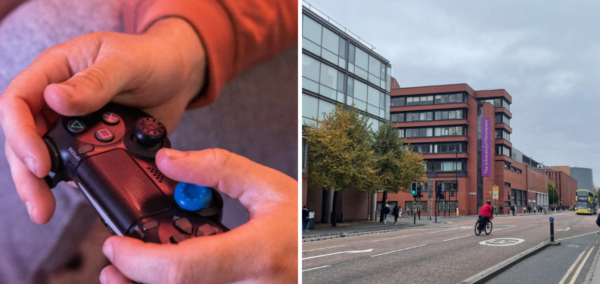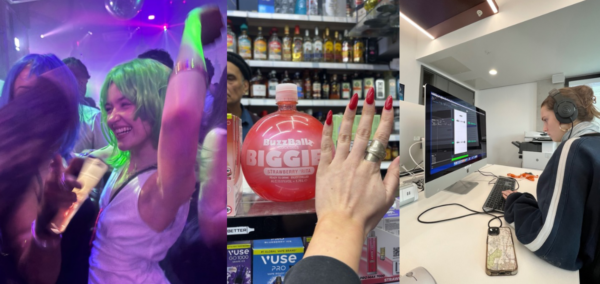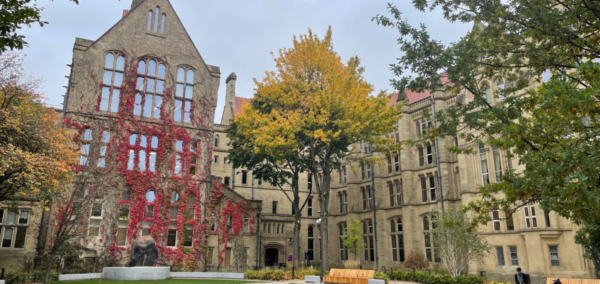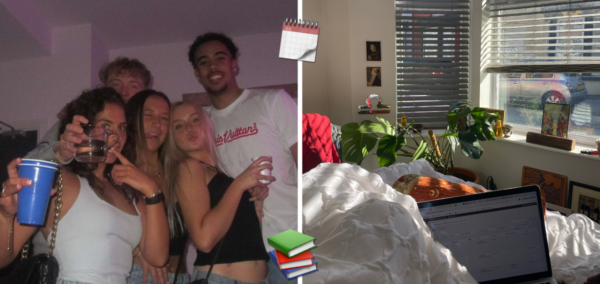
‘It isn’t a laughing matter’: Glasgow University students speak out about library incident
‘For those of us who already feel stretched thin, dealing with university stress and life pressures, this incident is more than just a security issue’
Following the recent incident at the University of Glasgow library, students have been vocal about their mixed emotions—ranging from unease and frustration to a call for empathy and change in how such events are handled and approached post-incident.
While exact details of the incident have been kept mostly confidential by university authorities and Police Scotland, many students feel the breach raised pressing questions about personal safety and campus security, with some pushing for increased transparency and support.
The incident, which initially sparked jokes and memes across social media, has divided the student body. For some, humour became a quick way to process shock, but others feel these reactions downplay the significance of what happened, leaving those directly affected feeling unheard and mocked. The impact has reached beyond individual students to shape broader conversations around how the university community addresses serious events on campus.
A third year sociology student, who preferred to stay anonymous, opened up about the lingering impact of the incident.
“I remember feeling a pit in my stomach the day I heard. The library was always my safe space, and I don’t know if it feels like that anymore,” she said. “Seeing memes and jokes about it makes it even harder to go back. People need to realise that when safety is involved, it isn’t a laughing matter.”
For many students, the incident not only brought up issues of security but also a deeper awareness of how quickly safety can be compromised.
Most Read
James O’Connell, a second year law student, shared that he’s found it difficult to study in the library since the event. “I go to the library to focus, to feel secure and supported, especially around exam time,” he explained. “But now, even when I’m there, I’m constantly looking over my shoulders. It’s exhausting. I think the university needs to do more to restore that sense of security.”
The university has responded with limited information, leaving some students feeling in the dark about both the causes of the breach and how future incidents will be prevented.
A statement released via an internal communications email last week expressed the administration’s commitment to campus safety and acknowledged students’ concerns. However, many feel this wasn’t enough. “We need specifics,” urged Emma Foster, a recent graduate who still frequents campus facilities, including the James McCune Building. “We want to know what the university is doing differently now. They owe it to their students, staff, and alumni to feel safe when on campus.”
In response to the criticism, the university has implemented temporary security measures including additional patrols and monitoring at the library. It also urged students who feel unsettled by the incident to use campus support services. Despite these steps, the students’ desire for transparency remains.
The incident has also raised questions about the university’s mental health and safety resources. One fourth year engineering student, who wishes to stay anonymous, shared her own sense of heightened anxiety since the breach, adding that she worries about peers who might already be dealing with mental health struggles. “For those of us who already feel stretched thin, dealing with university stress and life pressures, this incident is more than just a security issue,” she said. “It’s another layer of anxiety. The university needs to understand that.”
Many students agree that while social media jokes initially offered comic relief, it’s time for the community to treat the event with the seriousness it deserves. The trivialisation of the incident risks isolating those who felt personally impacted, students argue. “It’s more than just a single event; it’s about respect and taking our concerns seriously,” one student noted. “When people laugh it off, it feels like they’re dismissing the fear that a lot of us felt.”
As the university community processes the event, a collective understanding has emerged: that safety isn’t just a given but something that requires action and respect.
The University of Glasgow did not respond to requests for comment, but a previous statement from a spokesperson said: “The safety and security of our staff and students is always our number one priority.
“It is rare for members of staff to call the police to incidents on campus. However, sometimes it is necessary to call the authorities for the safety of those in our community, or for the wellbeing of those involved in an incident.”






















